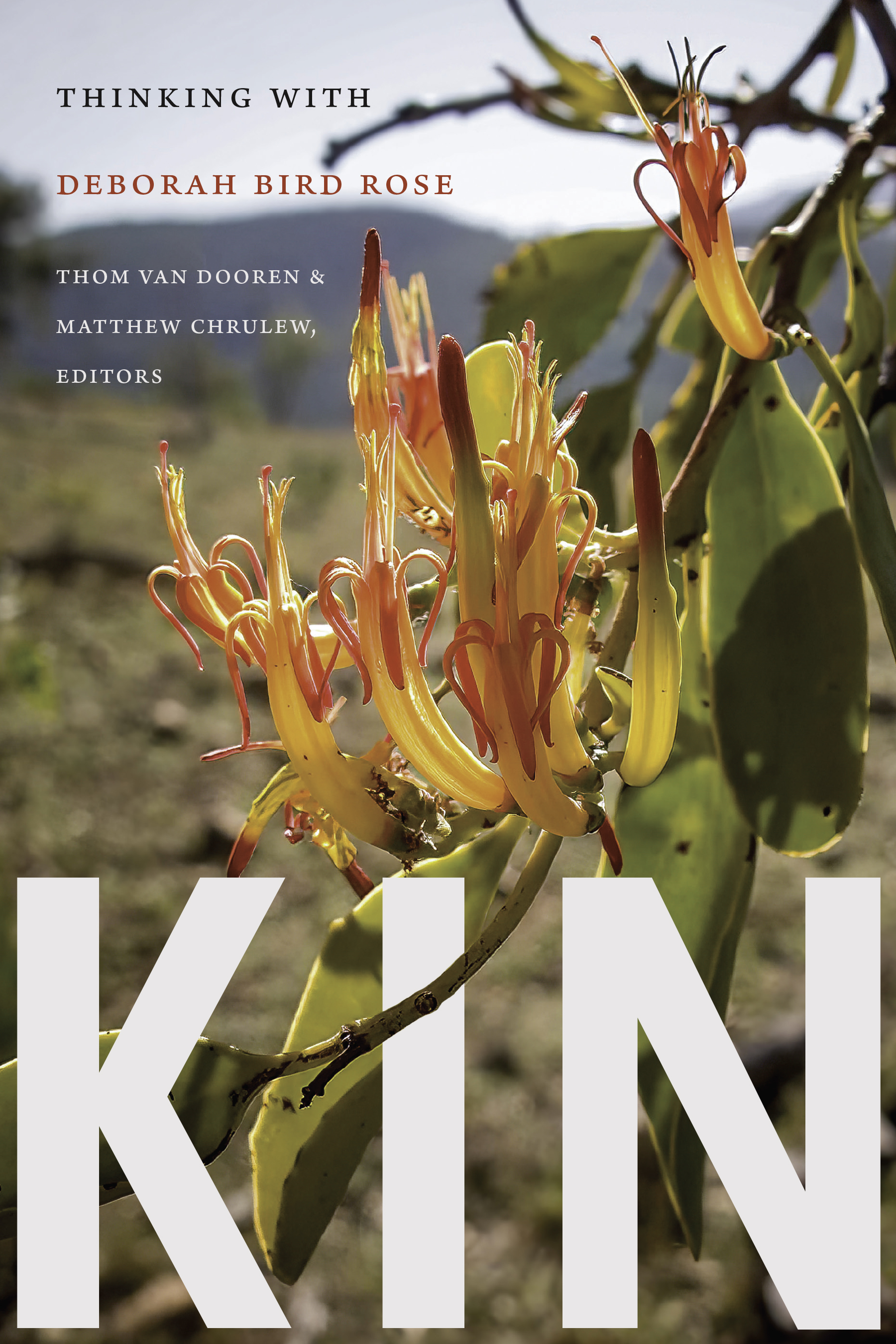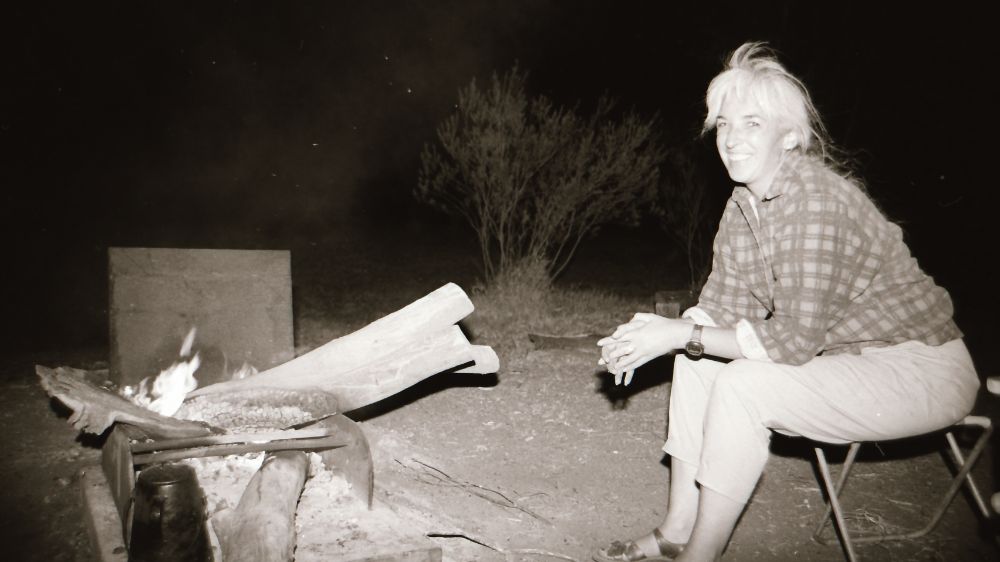The anthropologist Deborah Bird Rose was one of the founding and most significant figures in the emergence of the environmental humanities. Over a career spanning roughly four decades, Debbie made major contributions in a range of fields: from the environmental humanities and the anthropology of Indigenous Australia, to extinction studies, animal and multispecies studies, and philosophies of ethics, justice, religion, environment, temporality, and place. At the same time, Debbie also inspired the development of new modes of scholarship. Hers was a scholarly practice of paying close attention, of drawing together disparate voices from within and far beyond the academy, a practice grounded in a skilled refinement of the crafts of writing and story- telling, and a deep commitment to and creative intervention toward better possibilities for life and death.
This month, Matthew Chrulew and I published an edited collection honouring Debbie’s life and work: Kin: Thinking with Deborah Bird Rose (Duke University Press). ‘Kin’ was a central, animating, obligating, notion for Debbie. As we note in our introduction to the book:
“The life and work of Deborah Bird Rose were grounded in and animated by a world of kin. This is a world of interwoven, intergenerational, more-than-human connectivity that both sustains and obligates, calling out for care and responsibility. Kinship is reciprocal, situated, tying human beings to other kinds of animals and plants, vulnerable and creative bodies all, and to the wider seasons and patterns of Earth and the cosmos. While such an understanding always carries great significance, the particular challenge of Debbie’s work—the question that she returned to relentlessly—is how we are to keep faith with such a world in the midst of ongoing processes of colonization and extinction, of ecocide and genocide.”

In approaching these topics in this way, Debbie drew on the insights of decades of work with her Aboriginal teachers, friends, and adopted family, especially from the communities of Yarralin and Lingara in the Northern Territory. She sought to bring their understandings of the world into dialogue with both relational Western philosophies and the ecological sciences. In so doing, “she sought to articulate and advocate for a world of kin, grounded in a profound sense of the connectivities and relationships that hold us together, vulnerable and responsible to one another.”
The chapters in the collection aim not so much to explain or summarise Debbie’s work as to think with it – to take up key ideas and apply, redo, or stretch them. The book seeks to keep Debbie’s work alive and moving in the world, in the same way that she so often sought to do with the work of her own teachers and major influences. Chapters in the book are contributed by a range of leading scholars in the environmental humanities and associated fields, including Bawaka Country, Colin Dayan, Linda Payi Ford, Donna J. Haraway, James Hatley, Stephen Muecke, Catherine Rigby and Owain Jones, Catriona Sandilands, Isabelle Stengers, Anna Lowenhaupt Tsing, Thom van Dooren, and Kate Wright.
Shortly before Debbie passed away in 2018, I conducted an audio interview with her about her life and work, discussing many of her own major influences and key ideas. We decided at that time that it would be nice to release that interview around the publication of Kin. That interview has been beautifully edited by Jane Ulman and is now available here.
At the time of her death, Debbie was just finishing work on her book, Shimmer: Flying Fox Exuberance in Worlds of Peril. This book has also been published in the last couple of months and provides another invaluable opportunity for all of us to continue to learn from, be inspired by, and think with, Deborah Bird Rose.
